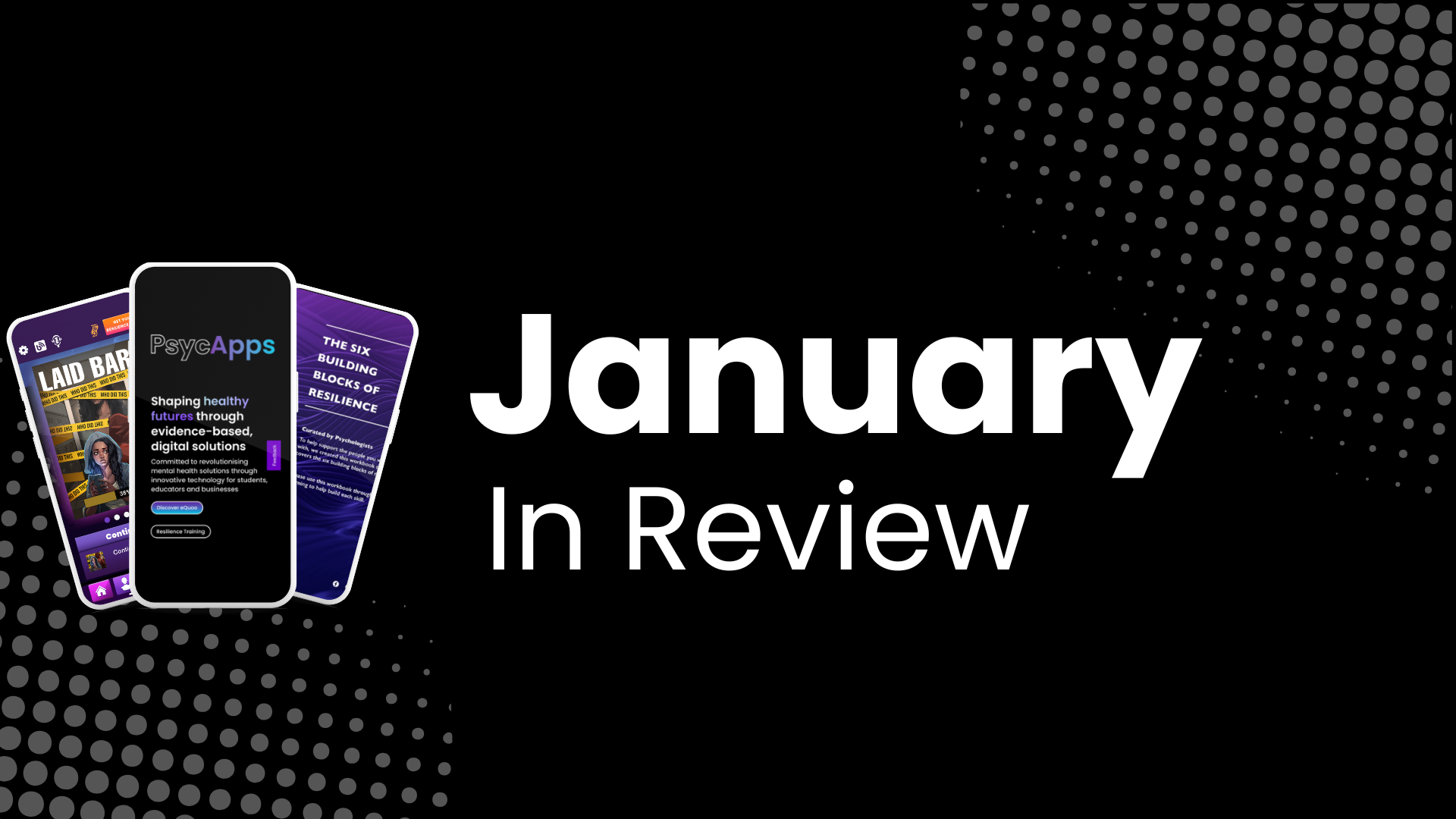January in Review
Key Mental Health Developments
As we kick off 2025, we’re reflecting on an eventful start to the year in the mental health space across the UK. From funding boosts to inspiring community initiatives, January has been full of developments worth celebrating and discussing. Let’s explore the top highlights of the month.
Blue Monday Sparks Nationwide Mental Health Awareness
This year’s “Blue Monday” fell on 15th January, often described as the most challenging day of the year. Organisations across the UK seized the opportunity to address this, sparking vital conversations around mental health. Charities such as Mind and Rethink Mental Illness launched campaigns encouraging people to talk openly about their feelings, and CALM (Campaign Against Living Miserably) took a strong stance, challenging the idea that mental health struggles can be tied to just one day.
Social media was flooded with creative initiatives, from free online wellbeing sessions to community support events, making it clear that mental health is a year-round priority, not just for one “blue” day.
£150 Million Boost for Mental Health Services
One of the biggest headlines this month was the government’s announcement of a £150 million funding package for urgent mental health care services in England. This investment aims to reduce pressure on A&E departments by expanding crisis teams, creating more “safe spaces” for those in mental distress, and improving urgent access to support.
While this funding is a positive step, it has also sparked important discussions about the need for long-term investment in preventative care, as well as the importance of addressing staffing shortages within the NHS. Nevertheless, this commitment is a promising signal of mental health being given higher priority in public health policy.
Children’s Mental Health Services Under the Spotlight
On 23rd January, the Children’s Commissioner for England published a report addressing significant challenges in children’s access to mental health support. The report highlighted long waiting times and inequalities in service provision across regions, particularly for early intervention programmes. It called for urgent changes to ensure that children and young people receive timely and effective care.
In response, several grassroots initiatives were launched this month. For example, charities such as Place2Be ramped up their efforts to provide school counselling and teacher training to support pupils’ mental wellbeing.
Record Levels of Workplace Mental Health Training
Workplace mental health took centre stage in January as businesses across the UK launched new initiatives to support employees. A standout development was the Mental Health Foundation’s new “Thriving at Work” toolkit, designed to help employers improve mental health support in the workplace. The toolkit offers practical resources, from creating flexible working policies to providing managers with mental health first aid training.
With January marking new beginnings for many, it’s encouraging to see a growing focus on workplace wellbeing. Mental health support at work continues to evolve, with hybrid and remote working environments prompting fresh approaches to keeping teams connected and supported.
London’s “Talking Therapies” Scheme Expands
The expansion of London’s Talking Therapies programme was another January highlight. This NHS initiative provides free psychological therapies for adults struggling with anxiety, depression, or stress. In January, the programme widened its reach to include more diverse communities by offering culturally tailored therapy options and multilingual services.
This expansion is a significant step towards improving access and inclusivity in mental health care, particularly for groups that have historically faced barriers to seeking support. The success of similar programmes in other cities, like Birmingham and Leeds, shows that offering tailored care can have a transformative impact.
Looking Ahead
January has set a strong tone for the year ahead, with progress being made in funding, access, and awareness. As we look forward to February’s Time to Talk Day and other upcoming initiatives, we remain committed to championing mental health support and innovation.


